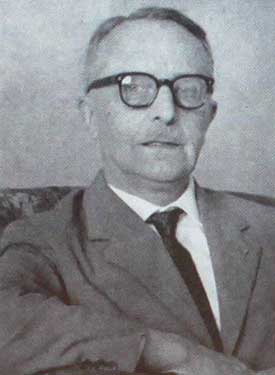
- Details
- Written by Brad Green Brad Green
- Category: Recommended Reading Recommended Reading
- Published: 29 August 2017 29 August 2017
- Hits: 3704 3704

(J.H. Bavinck)
It is rewarding when you see a number of interests converge in interesting ways. At the heart of the theology of Calvin (indeed, at the very beginning of his Institutes) is a key dyad: (1) the knowledge of God and (2) the knowledge of the self. For Calvin, these two kinds of knowledge are mutually reinforcing and intertwined. The more we know God the more we come to know who we truly are, and the more we know who we are, the more we are driven to see our need for the knowledge of God. But Calvin the great French theologian has been largely been rejected by the French 400 years later . . .
When one reads the 20th century French existentialists (and perhaps modern philosophy more generally) one sees a consistent tendency: the attempt to make sense of the self (the knowledge of the self) completely apart from the knowledge of God. Whether one reads Albert Camus, Jean-Paul Sartre, or many others, there is a consistent attempt to understand who we are without any recourse to the knowledge of God. It is no wonder that Camus, Sarte, and virtually the whole existentialist tradition was a tradition of despair--as they were quite happy to admit.
So, now I am reading an older classic book on the nature of missions: J.H. Bavinck, An Introduction to the Science of Missions, first published in 1960. There are gems on virtually every page, and I hope to share some of these. As a quick background, I think that in good Christian theology one of the important things one needs to be able to affirm, is the reality of both human and divine agency. One gets into a load of trouble by only affirming one or the other--either divine agency or human agency, but not both. This is absolutely critical. So, one must be able to affirm God's agency or action, and man's agency or action.
So, in reading Bavinck on missions, I was reading the chapter, "The Idea of Missions in the Epistles of the Apostles" (chapter 4). He writes:
"A missionary is the 'ambassador of Christ,' Christ's representative; God himself speaks through the mouth of the missionary. Paul's awareness of this is extremely striking, especially when he refers to himself. For then Paul always seeks to use the dangerous word 'I' in a responsibly Christian way, sot that both pride and helplessness are excluded" (p. 44).
Love it: "the dangerous word 'I'." One must be able to really speak of the importance of the "I". But to understand the "I" properly is to understand the "I" in relationship to God, as the one who has created and governs and rules the "I". Calvin got this right, the existentialists--and much of modern philosophy--did not and has not.
Good Christian theology--by seeing the "I" in proper relationship to God, can both affirm the importance of the "I", but can also--understood correctly--put the "I" in its proper place. The "I" is neither autonomous, nor one more meangless carbon unit in a meaningless world--a meaningless which drove Camus to assert that, even if the world is meaningless, and hence we live an absurd existence, it is nonetheless courageous to defy such absurdity, to try to go on living a "meaningful" life in a world bereft of meaning.
If the Christian understanding of reality is true, and I believe it is, the only path forward for modern man is to abandon both (1) the notion of an autonomous "I", as well as (2) the despair from trying to make sense of the "I"--the human person--apart from the reality of the good, loving, and Triune God. True meaning and freedom is only found in relating properly to that God who can show the "I" what it truly means to be a person, to be truly free.